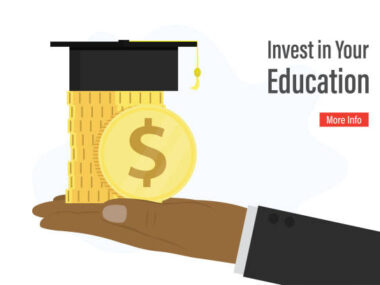Education policy jobs offer a plethora of ways to influence and enhance the learning experiences of students at all levels. From shaping classroom curricula to formulating strategic plans for institutions, those involved in education policy jobs are at the forefront of creating an impactful and equitable educational landscape.
In this blog post, we’ll explore the myriad of roles available, the paths one can take to enter this influential field, and the necessary qualifications and skills for thriving in these positions.
1. What Types Of Education Policy Jobs Are Available In The Government?
When considering a career in education policy jobs within the government sector, there is a diverse range of roles tailored to different interests and expertise:
Policy Analyst or Advisor roles: These positions involve crafting, analyzing, and advising on policies related to education at various government levels. Policy analysts and advisors play a vital part in shaping the educational landscape by influencing decisions that affect institutions, educators, and students.
- Assessing the educational needs of the population
- Crafting policy drafts and proposals for educational reform
- Advising government officials on the potential impacts of new policies
Education Program Officers or Managers: Responsible for overseeing the development and implementation of educational programs and initiatives, these professionals ensure that program objectives align with policy goals and are met effectively.
- Supervising program staff and overseeing project budgets
- Evaluating program effectiveness and suggesting improvements
- Collaborating with stakeholders to align programs with broader policy initiatives
Legislative Staffers: These individuals support elected officials by working behind the scenes to support the creation of laws and regulations pertaining to education.
- Researching educational issues and drafting legislation
- Preparing briefings and speeches for lawmakers
- Responding to constituent inquiries on education matters
Research Specialists: They focus on gathering and analyzing data to inform evidence-based policy decisions and to improve educational outcomes.
- Conducting studies on educational practices and policies
- Analyzing data to inform policy makers
- Publishing reports on educational trends and outcomes
Government Agency Education Leads: These are positions within specific departments, like the Department of Education, dedicated to shaping and managing education policies.
- Developing departmental strategies for education
- Coordinating with other agencies to align educational policies
- Leading teams that implement educational policy changes
Each of these roles contributes to a collective mission of enhancing the education system; ensuring opportunities for learning are accessible, sustainable, and forward-thinking.
2. How Can I Pursue A Career In Education Policy?
Embarking on a career in education policy entails a strategic approach to learning and experience-building:
Obtain relevant education: Begin with a degree in education, public policy, or a related field to gain the foundational knowledge necessary for a career in education policy. This foundation is crucial for understanding the complex landscape of education systems.
Build experience: Pursue internships, volunteer opportunities, or entry-level positions in educational institutions, nonprofit organizations, or government agencies. Here are a few steps to consider:
- Interning at a local school district’s policy department
- Volunteering for education-focused community organizations
- Seeking employment in administrative roles within schools for firsthand experience
Network: Connect with professionals in the field through conferences, online forums, and professional associations. Networking opportunities might include:
- Attending national education policy conferences
- Joining forums and discussion groups specialized in education policy jobs
- Reaching out to policy analysts or advisors for informational interviews
Develop specialized skills: Enhance your expertise in areas like research, data analysis, policy development, and advocacy.
- Participating in workshops on statistical analysis for education research
- Attending seminars on the latest trends in educational advocacy
- Enrolling in courses focusing on policy development and implementation
Stay informed: Keep up with current trends, legislation, and debates in the education sector.
- Subscribing to education policy journals and newsletters
- Following key education policymakers and thought leaders on social media
- Participating in policy forums and public discussions on education
These steps will help you prepare for a dynamic and meaningful career, allowing you to contribute to the shaping of educational policies.
3. Are There Specific Degrees Or Qualifications Needed For Education Policy Jobs?
Education policy jobs generally necessitate a combination of academic qualifications and practical experience:
Relevant degree: A fundamental requirement for many education policy jobs is a relevant degree, such as education, public policy, or political science. These fields provide you with the necessary theoretical background and analytical tools to succeed in policy-making.
Advanced qualifications: For those aspiring to senior roles or specialized research positions, advanced degrees like a master’s or a doctorate can be highly beneficial.
Graduate degrees can lead to roles like senior policy analyst or education program director.
Doctorates are often necessary for high-level research positions or university faculty roles in education policy.
Practical experience: Equally important is hands-on experience gained through work or internships in education or policy-making.
Policy internships at governmental agencies
- Teaching experience to understand the practical implications of education policies
- Administrative roles within education institutions to gain insight into policy implementation
Certifications or additional training: Some positions might require specific training or certifications in areas such as data analysis, grant writing, or educational leadership.
- Certification in education policy analysis
- Workshops in grant writing for educational programs
- Leadership training for educational administrators
Professional development: Continuous learning is often expected to stay current with educational legislation, emerging policy trends, and best practices.
- Attending regular policy seminars and workshops
- Engaging in continuous learning through online courses or certificate programs
Pursuing these academic and practical avenues can position you as a strong candidate for various roles within the education policy arena.
4. What Skills Are Most Important For Success In Education Policy Roles?
Successful professionals in education policy jobs possess a blend of specialized knowledge and key competencies:
Understanding of educational systems and structures: An in-depth knowledge of the inner workings of educational institutions is essential for crafting policies that can be effectively implemented and that genuinely improve the learning experience.
Analytical and research skills: Being able to critically analyze data, interpret complex studies, and evaluate educational outcomes is key to informing decisions and formulating sound policies.
- Designing and conducting policy impact studies
- Interpreting large data sets to draw conclusions about educational effectiveness
- Reporting on the implications of research findings for educational policy
Stakeholder engagement and communication: Engaging with various stakeholders including educators, parents, students, and other policymakers, and clearly communicating policy ideas and initiatives is crucial for gaining support and consensus.
- Facilitating focus groups with teachers to gather insights for policy development
- Communicating policy changes to educational communities through multiple platforms
- Building relationships with policymakers to advocate for education reforms
Strategic thinking and problem-solving: The ability to anticipate educational challenges and devise effective, long-term strategies is critical for addressing the myriad issues faced by the education sector.
- Analyzing potential roadblocks for new educational programs
- Developing solutions to overcome disparities in educational access
- Strategizing the allocation of resources for maximum impact
Legislative and regulatory knowledge: A clear understanding of the legal frameworks that govern education is necessary to ensure that policies comply with existing laws and regulations.
- Keeping abreast of new legislation affecting education
- Ensuring that policy proposals align with legal requirements
- Interpreting regulations to guide effective policy implementation
Developing these skills can not only facilitate your entry into the education policy jobs field but also ensure your continued success and ability to make meaningful contributions.
5. Where Can I Find Job Listings For Positions In Education Policy?
Locating the right opportunities in education policy requires checking a variety of resources:
Online job boards: Websites like Indeed, Glassdoor, and LinkedIn are great starting points. Customize your search according to your preferences, and consider setting up alerts for new postings that match your criteria.
- Filtering by job titles such as “Education Policy Analyst” or “Program Officer”
- Setting up notifications for job openings in preferred geographic locations
- Using specific keywords to narrow down your search to relevant opportunities
Professional organization websites: Check out organizations such as the American Educational Research Association (AERA) or the Association for Public Policy Analysis & Management (APPAM) for specialized job listings in research and policy roles.
- Monitoring job boards of these organizations for niche opportunities
- Participating in their online communities to stay informed about job openings
Government career portals: For federal positions, USAJobs.gov is a go-to website, while state and local government websites list opportunities in public education departments and policy advisory roles.
Searching based on job series numbers specific to policy work, such as “0343” for management and program analysis
Exploring opportunities within specific government departments like the Department of Education
University job boards: These are particularly useful for positions at academic institutions known for their strong public policy or education departments.
- Checking the career services of universities renowned for their public policy and education programs
- Looking for roles in research, policy analysis, or administrative positions related to education policy
Networking: Utilizing connections through LinkedIn groups, academic conferences, and seminars can lead to inside knowledge of job openings and might offer you a competitive edge.
- Establishing a strong professional profile on LinkedIn to attract potential employers
- Engaging actively in groups and discussions to demonstrate your expertise and commitment to the education policy field
Searching for education policy roles can be a multifaceted strategy, combining online exploration with proactive networking to uncover the most exciting and suitable job opportunities.
A Glance At Education Policy Analyst Jobs
Education policy analyst jobs encompass a wide range of research and evaluative duties designed to assess the quality and impact of educational policies:
Researching and evaluating educational policies: Analysts play an integral part in ensuring that policy proposals and existing regulations effectively facilitate learning and are accessible to all students.
- Examining national and local educational policies for inclusivity and effectiveness
- Providing feedback on how to improve educational access and standards
Working collaboratively with various stakeholders: These roles involve partnering with government agencies, educational institutions, and think tanks to generate impactful policy recommendations.
- Collaborating with educators and policymakers to enhance policy recommendations
- Participating in multidisciplinary teams to provide comprehensive policy evaluations
Analyzing data on educational performance: Analysts must have a keen eye for numerical data, looking at statistics regarding student outcomes and the success rates of various educational approaches.
- Studying performance metrics to determine policy effectiveness
- Using data to make predictions about the potential benefits of policy changes
Forecasting the effects of proposed policy changes: An important aspect of an analyst’s role is to look ahead, anticipating how potential changes might impact the educational landscape.
- Projecting the outcomes of revised educational standards or funding reallocations
- Providing thought leadership on the future direction of educational policy
Qualifications: Typically, these jobs require a combination of advanced degrees in relevant fields and experience in research or policy development.
- Seeking advanced education to fulfill the role requirements
- Gaining relevant experience in educational research to bolster your resume
Building a career as an education policy analyst means coupling robust research skills with a passion for improving education at all levels.
Remote Roles in Education Policy
As the workforce becomes increasingly digital, education policy jobs that are remote are also gaining prominence:
Versatile opportunities from home: Remote jobs afford policy professionals the chance to contribute to educational strategies without the need to commute, offering a balance between personal life and work commitments.
- Working on policy drafts and reviewing educational law from your personal workspace
- Joining virtual meetings with stakeholders to discuss policy developments
Diverse collaboration: These roles often provide opportunities to work with a broad team of experts from different geographical areas, fostering a rich exchange of ideas and perspectives.
- Engaging with international colleagues to share innovative policy ideas
- Bringing a global perspective to national or local educational policy concerns
Remote work flexibility: The option of remote work can, at times, offer more adaptable work hours, enabling policy professionals to work during their peak productive periods.
- Crafting research schedules that align with personal productivity rhythms
- Balancing work and life more effectively while still contributing significantly to education policy efforts
Qualifications for remote roles: A strong background in education or related fields is necessary, along with analytical and communication abilities.
- Presenting a portfolio that demonstrates expertise in education policy
- Highlighting experience with remote collaboration tools and methodologies
Exploring remote opportunities in education policy can lead to innovative work experiences that fit modern working lifestyles while still enabling significant contributions to the educational community.
Navigating Entry-Level Education Policy Jobs
For those just starting out, entry-level education policy jobs offer a gateway to influencing and shaping educational systems:
Foundation roles: Positions like policy analysts, program coordinators, research assistants, and advocacy associates are crucial for providing fresh perspectives within the policy landscape.
- Supporting senior policy staff in drafting and revising educational policies
- Coordinating schedules and logistics for program rollouts and evaluations
- Assisting with research that informs education policy decisions
Educational requirements: A bachelor’s degree in relevant disciplines is commonly required, with additional hands-on experience seen as a significant advantage.
- Completing pertinent internships to gain exposure to policy work
- Engaging with educational policy discussions and workshops to enhance understanding
Skills for success: Entry-level policy roles demand strong analytical thinking, effective communication capabilities, and a proficiency in research methodologies.
- Utilizing data analysis software to support policy research
- Crafting clear and persuasive policy briefs and presentations
Understanding the Landscape of Educational Policy Employment – Each setting within the field of education policy offers unique experiences and challenges. For example, working within federal or state government can provide a chance to influence large-scale policy decisions and directives that can impact entire education systems.
Such roles often require adept understanding of the legislative process and robust networking skills. On the other hand, non-profit organizations offer education policy professionals the opportunity to work on more targeted initiatives, potentially affecting change at the community level.
These roles might be ideal for individuals who value direct engagement with educators, students, and local stakeholders. Additionally, think tanks and research. Educational policy jobs can span a multitude of vibrant settings, each presenting its unique challenges and rewards.
Individuals seeking entry-level positions can find themselves working within the halls of government, influencing policy at the local, state, or federal level. These roles often involve direct interaction with legislation, giving employees the institutions are excellent environments for those who thrive on data analysis and evidence-based policy development.
To optimize this blog post for search engines, individuals looking for entry-level education policy jobs should leverage these insights to tailor their job search and skills development according to the unique demands and rewards of these different work environments.
Remember, aligning your passion with the specific needs of your desired setting can significantly enhance your job satisfaction and career advancement in education policy. Chance to contribute to laws and regulations that shape the educational landscape. Alternatively, the nonprofit sector offers roles that advocate for certain educational outcomes, focusing on community engagement and program implementation.
Here, workers can harness their passion for education by driving initiatives that support equitable access to learning resources. Moreover, think tanks and research institutions are prime environments for those who excel in data analysis and evidence-based policy recommendations.
These roles are crucial in shaping informed, strategic decisions that affect educational systems nationwide. Ultimately, regardless of the workplace, entry-level education policy jobs provide invaluable experience and the potential to make a substantial impact on the future of education.






